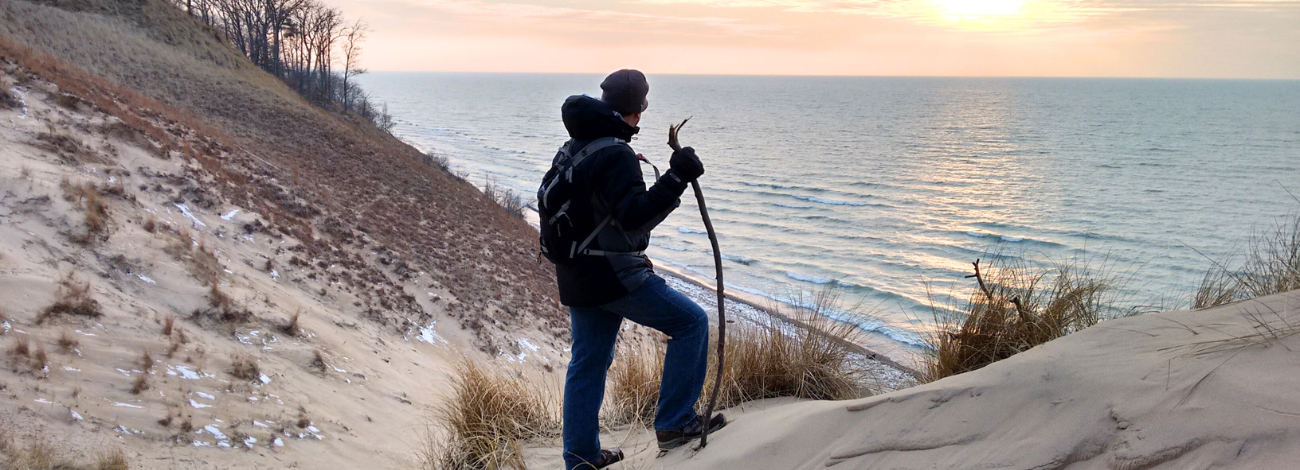Valuing Michigan’s coastal dunes with GIS, economics

In late 2016, the Michigan Coastal Zone Management Program, through NOAA and the Michigan Office of the Great Lakes, funded the Michigan Environmental Council project, “Valuing Michigan’s Coastal Dunes: GIS Information and Economic Data to Support Management Partnerships.”
The results described here represent an exciting new chapter in the history of Michigan’s understanding and management of a true global treasure—the largest collection of freshwater coastal sand dunes found anywhere in the world.
The project is part of an ongoing effort to advance the collective awareness and understanding of this resource.
See our social, photographic research
The new project, which kicked off in late 2016, emerged directly from that earlier work. A new project team was assembled including: academic experts Alan F. Arbogast, Sarah Nicholls and Robert B. Richardson, of Michigan State University; Elaine Sterrett Isely of member group West Michigan Environmental Action Council; Jonathan Jarosz of Heart of the Lakes; Alek Kreiger Ducks Unlimited; and an engaged set of dune stakeholders from other organizations and the general public.
Discover
Power environmental change today.
Your gift to the Michigan Environmental Council is a powerful investment in the air we breathe, our water and the places we love.
Sign up for environmental news & stories.
"*" indicates required fields




